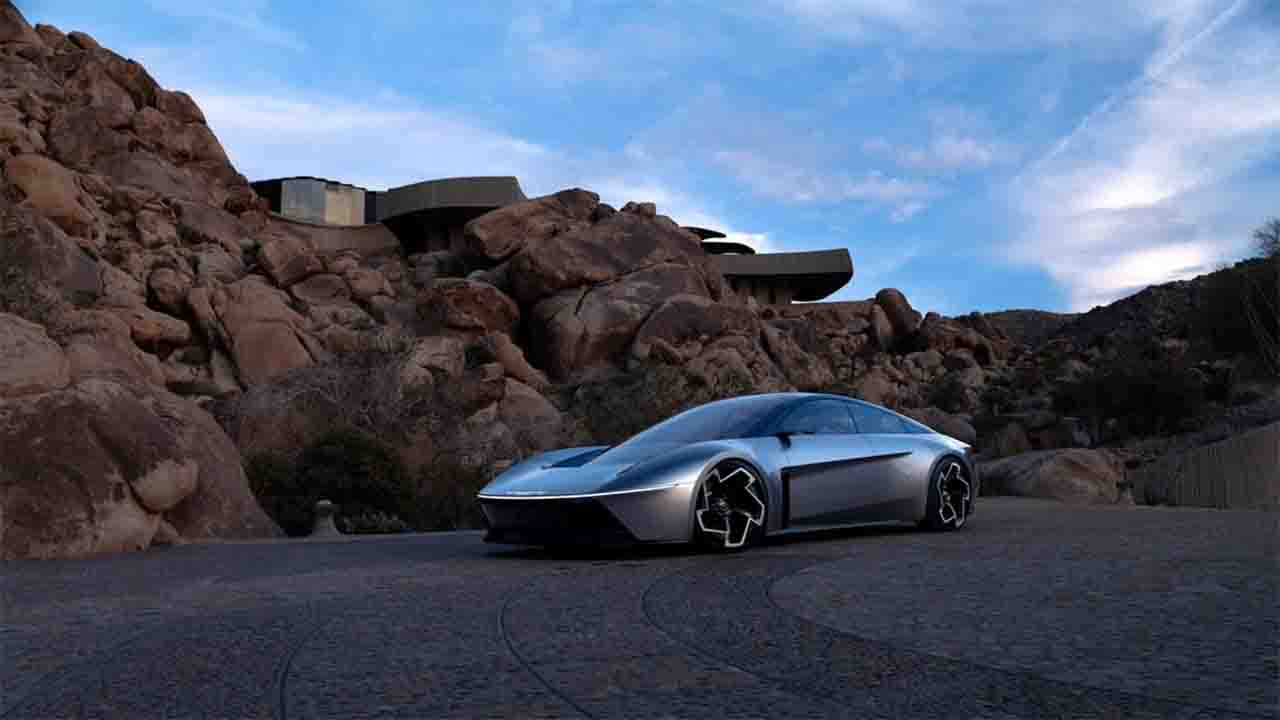(Commonwealth) _ Chrysler made waves with the unveiling of its Halcyon Concept electric sedan, highlighting its cutting-edge 800-volt lithium-sulfur batteries. These batteries, Chrysler claims, offer a 60 percent reduction in carbon footprint compared to current batteries, marking a significant step forward in sustainable automotive technology.
The Halcyon Concept introduces a groundbreaking innovation through its utilization of Lyten cells, marking a significant departure from conventional lithium-ion battery technology. Unlike traditional batteries that rely on metals such as nickel, cobalt, and manganese, Lyten cells harness the power of sulfur, a lighter element abundant on Earth. This strategic shift not only enhances energy density but also holds the potential to revolutionize the economics of battery production.
The decision to replace traditional metals with sulfur stems from its unique properties and widespread availability. Sulfur’s abundance in volcanic regions and near hot springs offers a sustainable and cost-effective alternative to scarce and expensive metals. By leveraging sulfur as the primary component, the Halcyon Concept pioneers a new approach to battery design that prioritizes efficiency, affordability, and environmental sustainability. Despite the theoretical promise, the adoption of lithium-sulfur technology in on-road vehicles remains elusive. While various prototypes and research projects have demonstrated its potential, commercial implementation has yet to materialize. Nonetheless, the automotive industry’s quest for alternative battery chemistries continues to gain momentum, fueled by the desire to reduce reliance on rare and costly metals inherent in lithium-ion batteries.
The pursuit of lithium-sulfur cells represents a strategic shift towards sustainable and innovative battery solutions. As EV manufacturers seek to overcome the challenges of resource scarcity and environmental impact, the Halcyon Concept stands as a testament to the industry’s commitment to technological advancement. While the road to widespread adoption may be long and arduous, the potential benefits of lithium-sulfur technology underscore its importance as a catalyst for the future of electric mobility. To gain insights into the viability of lithium-sulfur batteries for EVs, Car and Driver consulted Haresh Kamath, director of energy storage at the Electric Power Research Institute (EPRI). Kamath acknowledges the credibility of lithium-sulfur batteries as an alternative to lithium-ion cells, a recognition spanning three decades. However, he cautions that significant technological advancements, scalable manufacturing processes, and commercialization efforts are necessary to bring lithium-sulfur batteries to market.
Despite the potential benefits, Kamath emphasizes the uncertainty surrounding the cost competitiveness of lithium-sulfur products compared to lithium-ion batteries. Mass commercialization poses challenges related to safety, particularly concerning fire and explosion hazards inherent to new battery technologies. Therefore, while lithium-sulfur batteries hold promise, their development remains in progress, requiring extensive research and development efforts to overcome technical and commercial obstacles.
In essence, lithium-sulfur battery technology is still in the developmental phase. While it shares theoretical advantages with solid-state lithium-ion cells, such as enhanced energy density, it has yet to reach the maturity required for mass production and widespread adoption in EVs. Kamath’s insights underscore the protracted timeline typically associated with battery development, indicating that future Chrysler EVs in the late 2020s are more likely to utilize variants of existing lithium-ion cells than lithium-sulfur technology. Chrysler’s Halcyon Concept represents a bold exploration of innovative battery technologies aimed at revolutionizing the automotive industry’s sustainability landscape. However, the transition to lithium-sulfur batteries entails formidable challenges and uncertainties, necessitating sustained research and investment to realize its full potential. While the promise of lithium-sulfur technology is tantalizing, practical considerations and safety concerns underscore the long road ahead before it can become a mainstream solution for electric vehicles.








